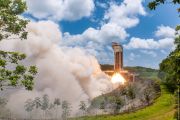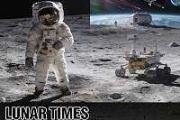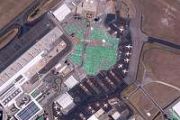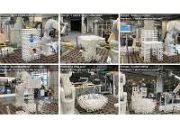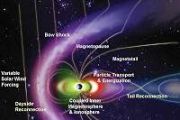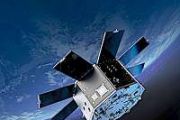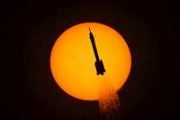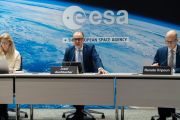
Copernical Team
Space Force accelerates Missile Warning capabilities
 The U.S. Space Force's Space Systems Command (SSC) is advancing its missile warning and tracking capabilities through the continued development of the Future Operationally Resilient Ground Evolution (FORGE) Command and Control (C2) ground system. As part of its strategic approach, SSC has awarded a $151 million Other Transaction Authority (OTA) contract to BAE Systems under the Space Enterprise
The U.S. Space Force's Space Systems Command (SSC) is advancing its missile warning and tracking capabilities through the continued development of the Future Operationally Resilient Ground Evolution (FORGE) Command and Control (C2) ground system. As part of its strategic approach, SSC has awarded a $151 million Other Transaction Authority (OTA) contract to BAE Systems under the Space Enterprise SatixFy receives UK Space Agency grant to develop or Advanced LEO Payload Software
 SatixFy Communications (NYSE American: SATX) has been awarded GBP 1.8 million (approximately $2.3 million) by the UK Space Agency through its C-LEO program. The funding is designated for the creation of an advanced software suite for digital satellite payloads.
The investment will facilitate the development of cutting-edge regenerative and digital beamforming software to meet the rising de
SatixFy Communications (NYSE American: SATX) has been awarded GBP 1.8 million (approximately $2.3 million) by the UK Space Agency through its C-LEO program. The funding is designated for the creation of an advanced software suite for digital satellite payloads.
The investment will facilitate the development of cutting-edge regenerative and digital beamforming software to meet the rising de KP Labs Unveils Smart Mission Lab to Revolutionize Space Technology Validation
 KP Labs has launched Smart Mission Lab, an innovative platform aimed at transforming the development and testing of AI models and onboard data processing for space missions. Supported by ESA InCubed, a program managed by ESA F-lab, the Smart Mission Lab offers remote access to KP Labs' high-performance Data Processing Units (DPUs), enabling engineers, researchers, and mission planners to test an
KP Labs has launched Smart Mission Lab, an innovative platform aimed at transforming the development and testing of AI models and onboard data processing for space missions. Supported by ESA InCubed, a program managed by ESA F-lab, the Smart Mission Lab offers remote access to KP Labs' high-performance Data Processing Units (DPUs), enabling engineers, researchers, and mission planners to test an Astroscale and BAE Systems Progress In-Orbit Satellite Refurbishment to Support Circular Space Economy
 Astroscale Limited ("Astroscale UK"), the UK branch of Astroscale Holdings Inc., a leader in satellite servicing and orbital sustainability, has successfully completed a study focused on developing the capability to refurbish and upgrade satellites for commercial operations.
This initiative is part of the European Space Agency's (ESA) 'Systems Studies for a Circular Economy in Space' progr
Astroscale Limited ("Astroscale UK"), the UK branch of Astroscale Holdings Inc., a leader in satellite servicing and orbital sustainability, has successfully completed a study focused on developing the capability to refurbish and upgrade satellites for commercial operations.
This initiative is part of the European Space Agency's (ESA) 'Systems Studies for a Circular Economy in Space' progr ESA’s pioneering Biomass satellite arrives at launch site

Marking another step towards new insights into Earth’s forests and their role in the carbon cycle, ESA’s groundbreaking Biomass satellite has arrived at Europe's Spaceport in French Guiana, to be prepared for liftoff on a Vega-C rocket at the end of April.
Hera: Target Deimos
 Image:
Hera: Target Deimos
Image:
Hera: Target Deimos Watch live: Images from Hera’s Mars flyby
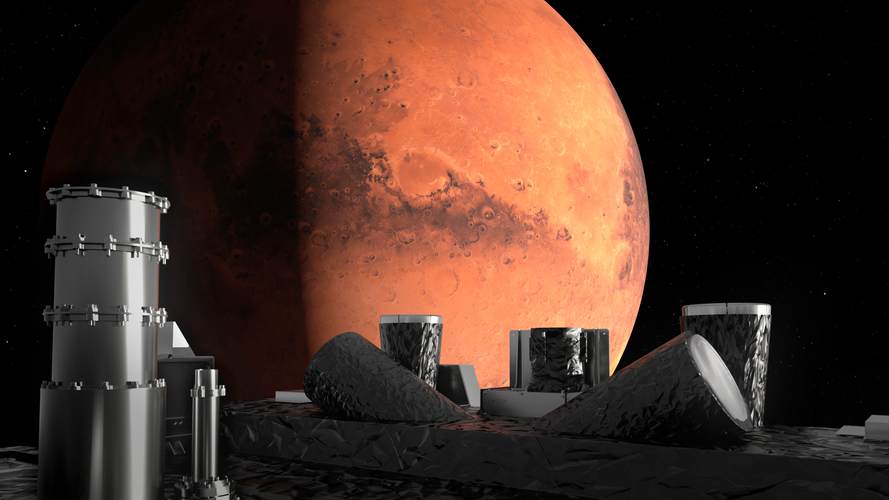
Join us live for a star-studded event this Thursday, as scientists working on ESA’s Hera mission for planetary defence release the mission’s first scientific observations beyond the Earth-Moon system, following its imminent flyby of Mars.
Hera asteroid mission’s Mars flyby
 Video:
00:01:36
Video:
00:01:36
On Wednesday 12 March 2025 ESA’s Hera spacecraft for planetary defence performs a flyby of Mars. The gravity of the red planet shifts the spacecraft’s trajectory towards its final destination of the Didymos binary asteroid system, shortening its trip by months and saving substantial fuel.
Watch the livestream release of images from Hera’s flyby by the mission’s science team on Thursday 13 March, starting at 11:50 CET!
Hera comes to around 5000 km from the surface of Mars during its flyby. It will also image Deimos, the smaller of Mars’s two moons, from a minimum 1000 km away (while
NASA rolls out Artemis II Orion spacecraft, twin rocket boosters for moon mission
 NASA on Friday rolled out the new Artemis II Orion spacecraft and twin Space Launch System solid rocket boosters that will carry astronauts in the first crewed Artemis mission around the moon.
That lunar flyby mission carrying four astronauts is set for launch in April 2026. It's a flight test mission that will pave the way for landing the first woman and the next man on the moon.
NASA on Friday rolled out the new Artemis II Orion spacecraft and twin Space Launch System solid rocket boosters that will carry astronauts in the first crewed Artemis mission around the moon.
That lunar flyby mission carrying four astronauts is set for launch in April 2026. It's a flight test mission that will pave the way for landing the first woman and the next man on the moon. 
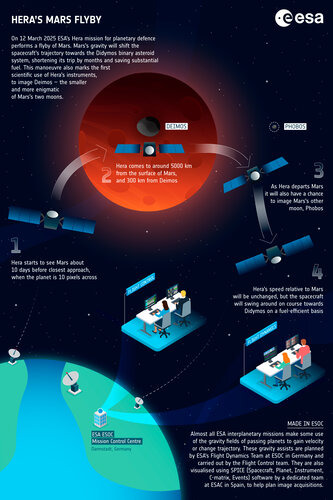 Image:
Hera Mars flyby
Image:
Hera Mars flyby 









